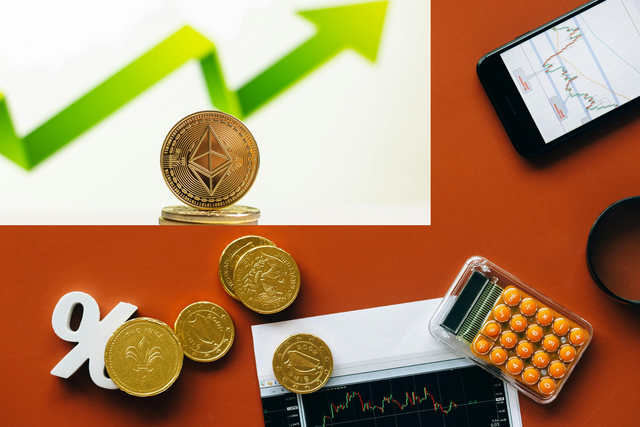 source and edited in canva
source and edited in canva
Hi friends! It feels good to be part of this weekly contest that sharpens and improves our knowledge in the crypto space. We have been contributing and learning from each other and thanks to @waqarahmadshah for continuously providing the needed support that keeps engaging steemians in this community.
First and foremost, let me begin by discussing staking and trading before I dive into their differences in risks.
STAKING: Staking has to do with fixing tokens on a chosen network blockchain for a certain period of time for a defined reward (percentage) return at the end of the defined period. Staking gives opportunity to investors be part of proof-of -take used in blockchains.
TRADING: Trading involves the prediction or the speculation on future prices of crypto or digital assets by the act of buying and selling through an exchange.
 source and edited in canva
source and edited in canva
Below are some of the associated risks in staking and trading:
STAKING:
The rewards in staking may not be as stated. Crypto projects may promise high returns for staking and fail to honor the potential or promised rewards.
One could incure the risk of loss when the price of the underlying asset performs below the percentage yield or the stated returns.
Again, if the price of the underlying asset been staked drops, investors have no option than to wait till the end of the staking period, before they could unstake or unlock their tokens.
The risk of regulation or legalization: In regions where staking services are regulated and exchanges offer staking services without duely registering the services, they could be sued or forced to stop offering the services. This would in turn, lead to negative perceptions of the exchange by the investors.
Validation and illiquidity risks: The validation risk is a risk that arises in staking when pool managers negatively manipulate the rewards. On the other hand, when investors fix or lock their tokens, the market suffer illiquidity as there would be less tokens available for trading in the market that.
FOR TRADING:
Just as there are risks in crypto staking, there are also risks in crypto trading which differs from staking. Below are some of the risks associated with crypto trading:
Margin or leverage risks: In trading, the margins or leverage used increase the chances of shutting down open positions.
For you to be a trader, you must learn to tolerate risk taking.
The high volatility of crypto Price movement, makes it a risky decision to be a trader.
While choosing to eithertrade or stake, one should consider the following factors:
Your knowledge about investing or staking
Your time schedule or availability of time
Your level of risk tolerance
Your defined financial goals, Long term or short term
Staking rewards are income made from fixing or locking up your tokens for a defined or definite period of time, While trading profits are gains made from buying and selling of the crypto currency.
Traders and investors alike makes their decisions based on several factors including their trading skills, availability of time, risks tolerance and knowledge. Staking and Trading are the two windows through which one could actually participate and make money from the market based on the factors as mentioned above.
@nsijoro
@zekanem
@basil20
@chibuzorwisdom
Do join me to participate in this contest
